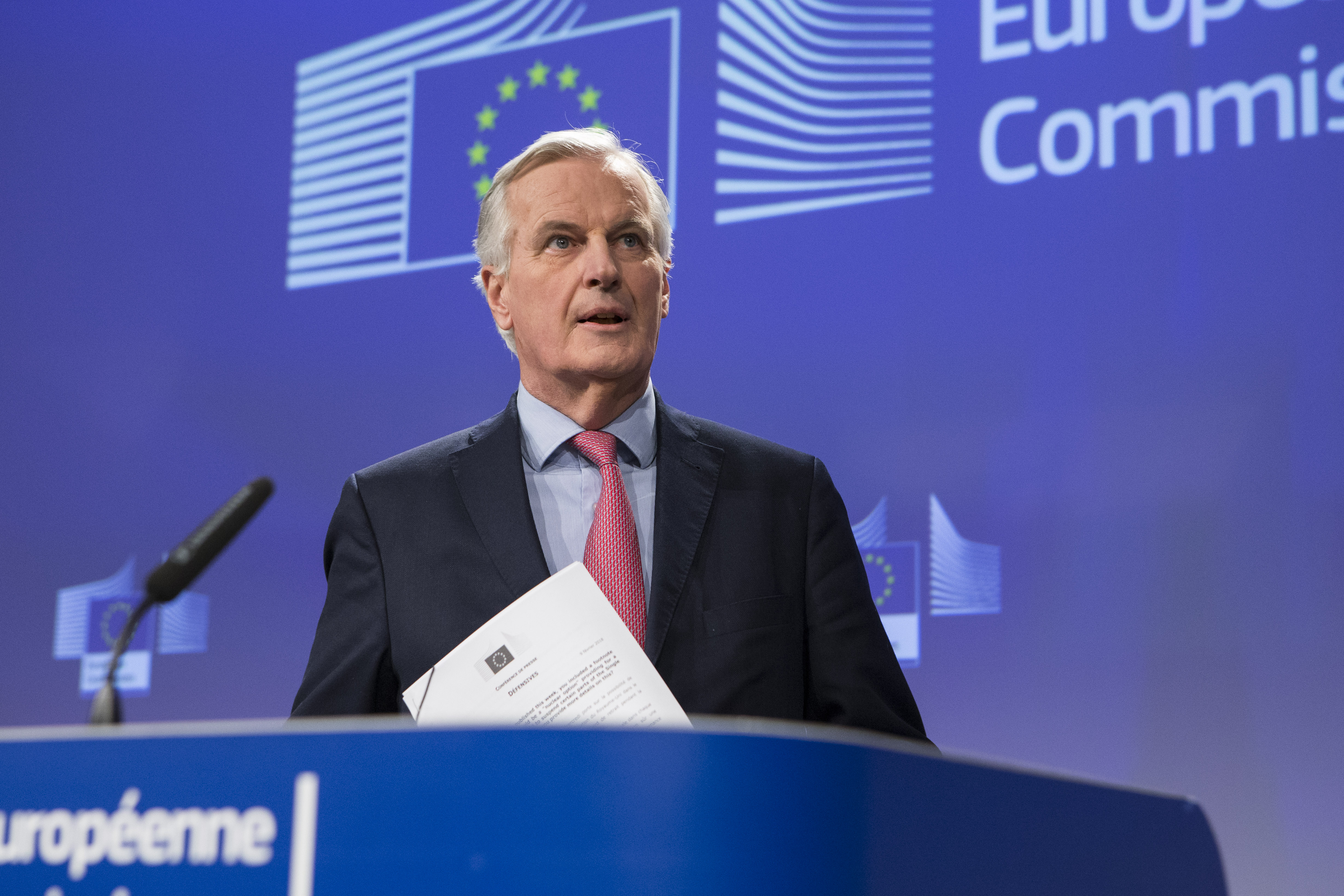EUROPEAN UNION
In approximately five months, on March 29 2019, the United Kingdom will leave the EU. In addition to the discussions on trade, financial, labour, cultural and social ties between the EU and the UK, Brexit could also affect the Good Friday Agreement of 1988 that ended the civil war in Northern Ireland, thereby reopening border issues. The words of Msgr. Nicholas Hudson, Auxiliary Bishop of Westminster (London), and Msgr. Noel Treanor, Bishop of Down and Connor (Ireland), whose diocese extends into Northern Ireland

EU withdrawal deal is “95% settled.” The reassurance of English Prime Minister Theresa May to the House of Commons a few days ago was wet blanket for approximately 700 thousand people who took to the streets of London on October 20, headed towards Parliament, demanding a referendum on a final Brexit deal, following that of 2016, object of the talks between London and Brussels. Negotiating difficulties and fears had reignited the hopes of all British citizens who had dreamt a victory of “Remain”, or rather, of a “Bremain”, at the referendum of June 23 2016, ultimately shattered by 48% who endorsed the “leave.” That cherished dream is now to be shelved along with the flags featuring a circle of 12 gold stars on a blue background, representing the ideals of unity, solidarity and harmony of the peoples of Europe. Looking forward to better times. If they will come.

Bruxelles, 9 febbraio: la conferenza stampa odierna di Michel Barnier (foto SIR/Commissione europea)
Negotiations are ongoing, thorny aspects include the creation of a EU common regulatory area comprising the United Kingdom, that would include Northern Ireland. As known, Ireland is politically divided, with Northern Ireland being part of the United Kingdom, separate from the Republic of Ireland. However, until now the two Countries have remained united, given the lack of a hard border. A rejection of the Brexit deal would imply the reinstatement of a geographic border extending for 360 kilometres – which nobody wants – and an annulment of the Good Friday Agreement (April 10 1998) that brought an end to a civil war that had waged in the region for over three decades, leaving 3600 dead, 2000 of them civilians.
Relations to be preserved. “Leaving the EU does not mean to leave Europe.” Mons. Nicholas Hudson, Auxiliary Bishop of Westminster (London) told SIR on the sidelines of the plenary assembly of the Commission of Bishops’ Conferences of the European Union (COMECE) held a few days ago in Brussels. The Brexit deal is one of the items on the agenda, illustrated by Michel Barnier, European Chief Negotiator for the United Kingdom Exiting the European Union. “In 2016 – the bishop said – many UK citizens thought that exiting the EU would be easy. After 18 months they realized that this is far from the truth. Brexit negotiations are proving to be increasingly complex as we move towards the fateful deadline of March 29 2019, 11 pm local time, when the UK is scheduled to leave the EU bloc. As of yet, the impact of all this on British society is far from clear.”
“The Church does not interfere with political decisions – Msgr. Hudson pointed out – . Britain’s PM Theresa May has ruled out the possibility of another referendum. On our part we can’t refrain from being concerned about the possibility that a wealth of relations – social, commercial, human and cultural relations – that developed over the past decades, might be jeopardized by EU leave. We keep a close eye to ensure it will not happen. The Church intends to preserve bridges and bonds.” Msgr. Hudson and the whole Catholic episcopate of the United Kingdom firmly believe that
“Leaving the EU does not mean leaving Europe.”
“The role of the Church – he pointed out – is also to reaffirm the value of dialogue and sharing, and to warn about the consequences of Brexit on society.” It will affect, said the auxiliary of Westminster quoting the British Premier, “the free movement of immigrant workers, especially lower-skilled workers, that could be subjected to restrictions, family members who are not British citizens may have to apply for a visa, along with the payment of a “spouse visa” for married couples where one of the spouses is not a British citizen.” Msgr. Hudson voiced his concerns over “the rise in hate crimes after the 2016 referendum, which, since then, have never fallen below the pre-Brexit average rate”, a phenomenon “which the Church is actively addressing.” Nonetheless, Msgr. Hudson said he firmly believes that
“UK-EU relations will remain solid and will jointly proceed along a common path. In fact we need one another. The EU is a project of peace, and the United Kingdom will continue playing a significant role in the Old Continent. For this to happen it should be put in a position to contribute to Europe’s development.” “Although we will no longer have a seat at the EU 27 table – the bishop concluded – we will continue building ties in the areas of science, research, and culture. Our mutual relations need to continue growing ever more.”
Reconciliation at risk. Msgr. Noel Treanor, Bishop of Down and Connor (Ireland), whose territory extends into Northern Ireland, is equally concerned. The bishop is aware that reinstating the border between Dublin and Belfast could reopen old wounds. Echoing the words of Msgr. Hudson, he underlined the “uncertainties” about the future. In fact the meeting in Brussels at the COMECE Assembly, with EU Chief Negotiator Michel Barnier, did nothing but reinforce this belief. “Brexit – he told SIR – will have a strong impact on the economic, political and social life of the citizens of Northern Ireland. The economies of Northern Ireland and the Republic of Ireland grew deeply integrated, especially over the past 20 years, following the Good Friday Agreement of 1998 between the United Kingdom and the Republic of Ireland and between the latter and Northern Ireland. Brexit is bound to affect the economic growth of the two Countries, the revenues of the population, the prospects of development, thereby affecting families as well. Until now the two Countries – as EU Member States – enjoyed the freedoms enshrined in European treaties, namely the free movements of goods, services, persons and capital.” Potentially negative consequences could also impact the political realm, since, Msgr. Treanor pointed out:
“Brexit risks undermining the relations established with the Good Friday Agreement. The reinstatement of a hard border would bring about controls on persons, services, goods and so on.” For the bishops, the most worrisome aspect “is the possibility of a paramilitary reaction on the part of dissident factions with severely negative consequences on the reconciliation process and the stabilization of the society of Northern Ireland, that registered remarkable progress in the past 20 years also thanks to Europe. It might have to start again from scratch.” For Msgr. Treanor there is still room for hope, represented by Michel Barnier.
“I believe that the project is under way, and it’s a tragedy.
And I don’t believe, as many still do, that Brexit will not take place. I only hope that the EU’s Chief Negotiator for the United Kingdom will manage to find a sustainable solution. I have confidence in the determination of social society and of the citizens of the two States to continue walking side by side.”